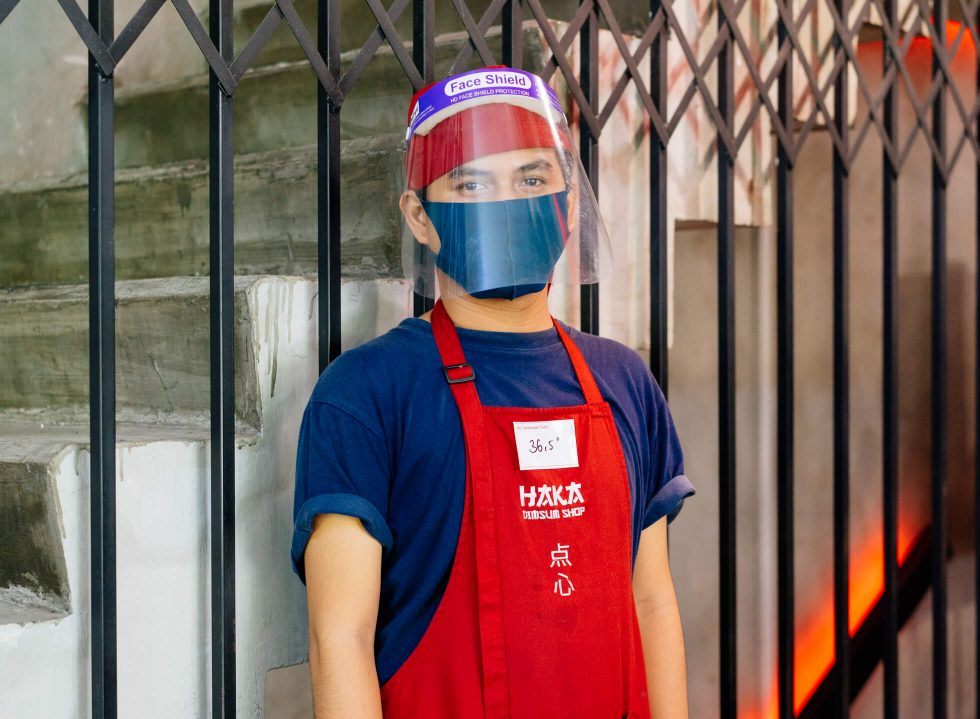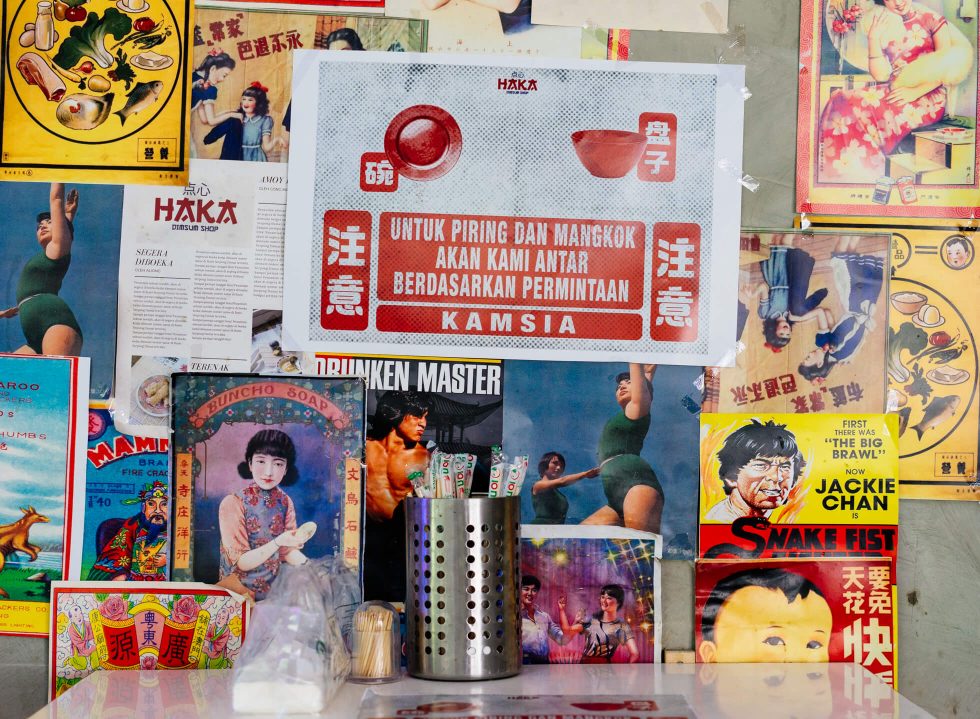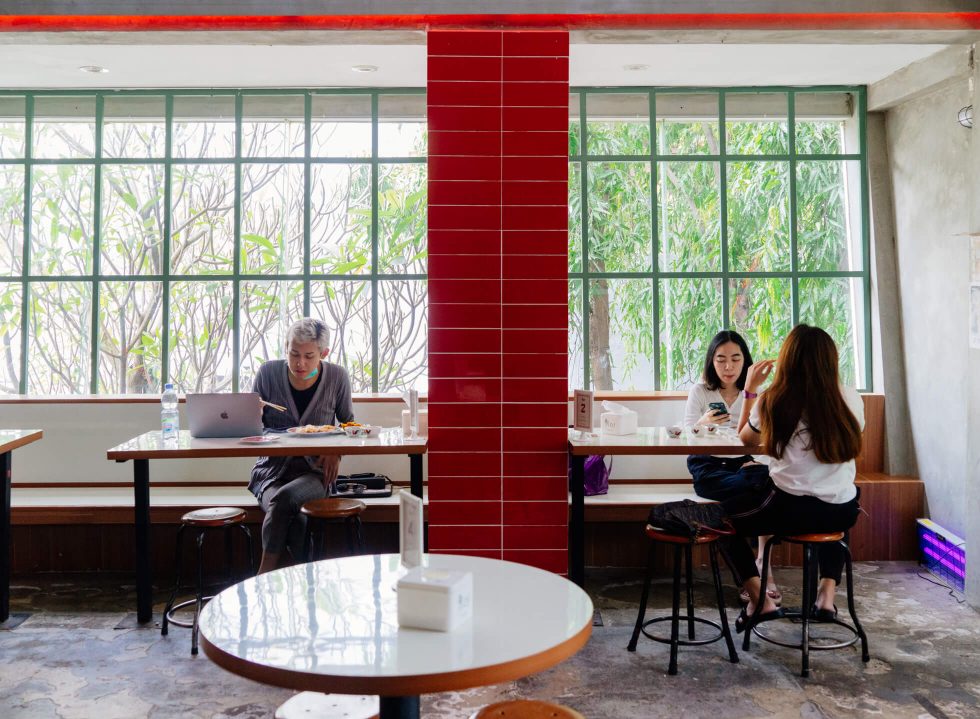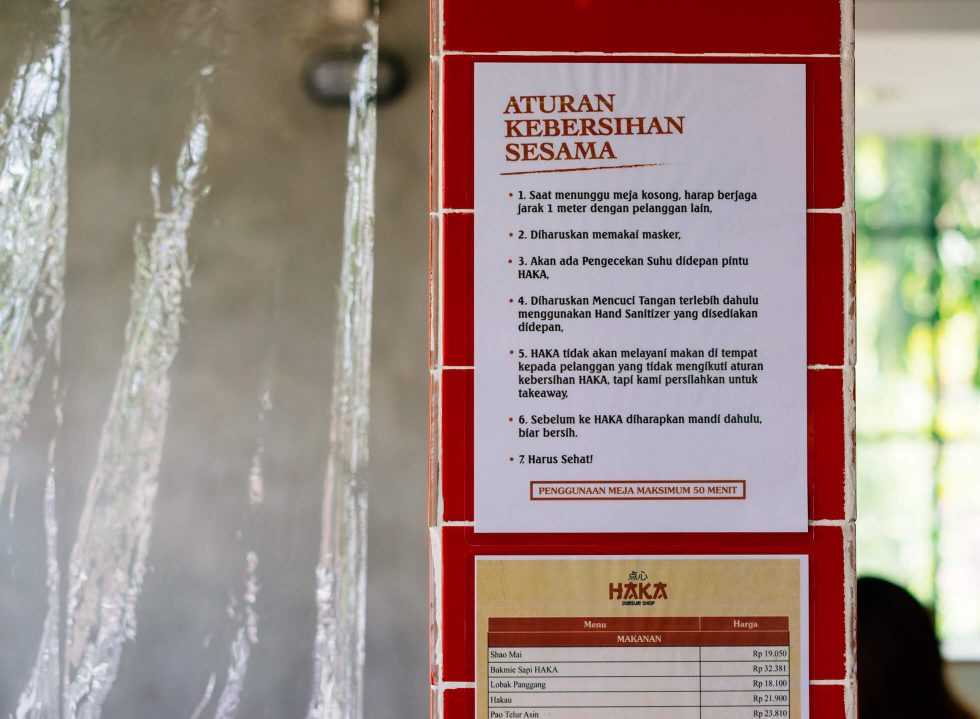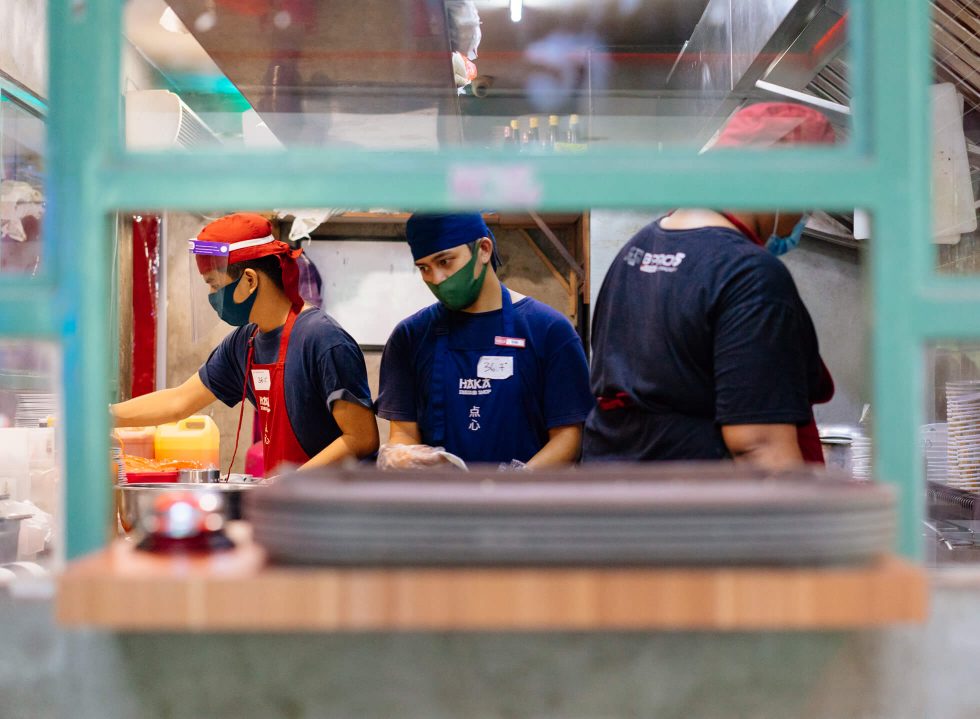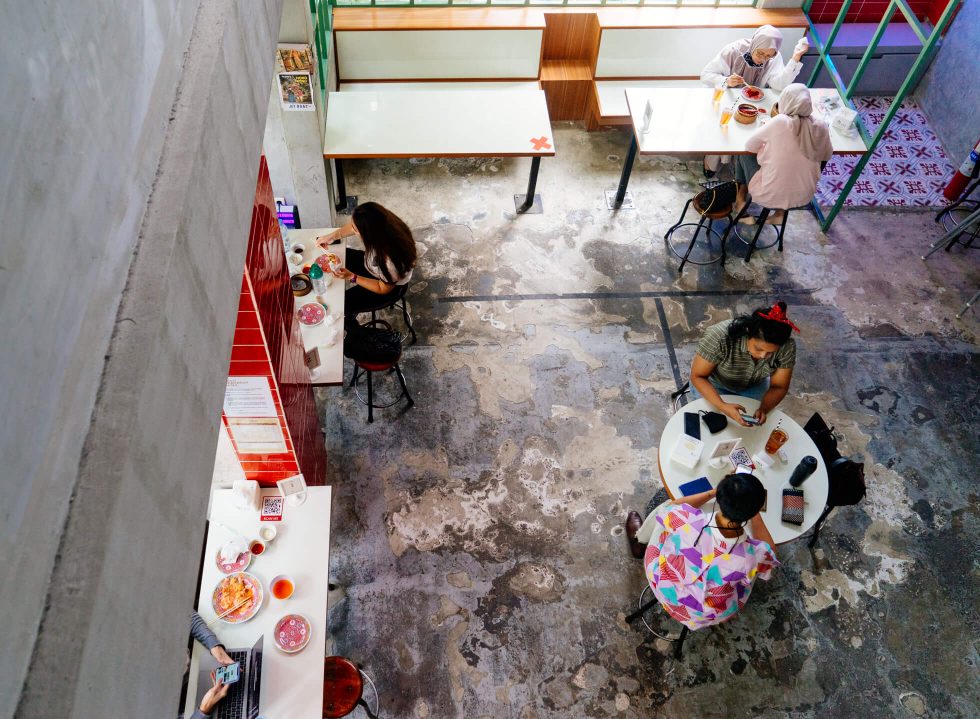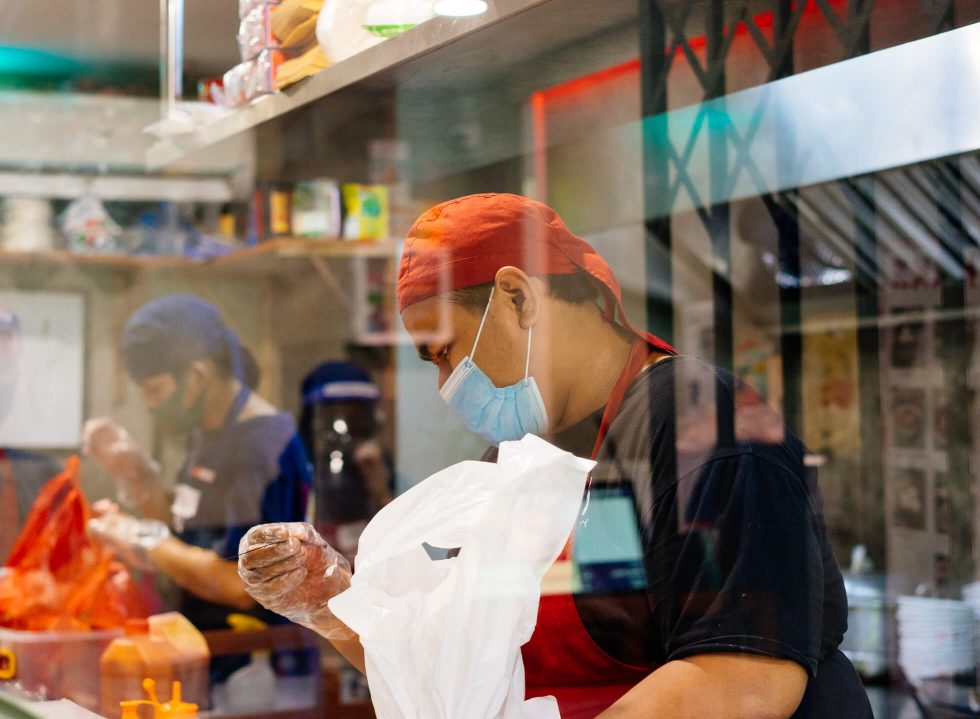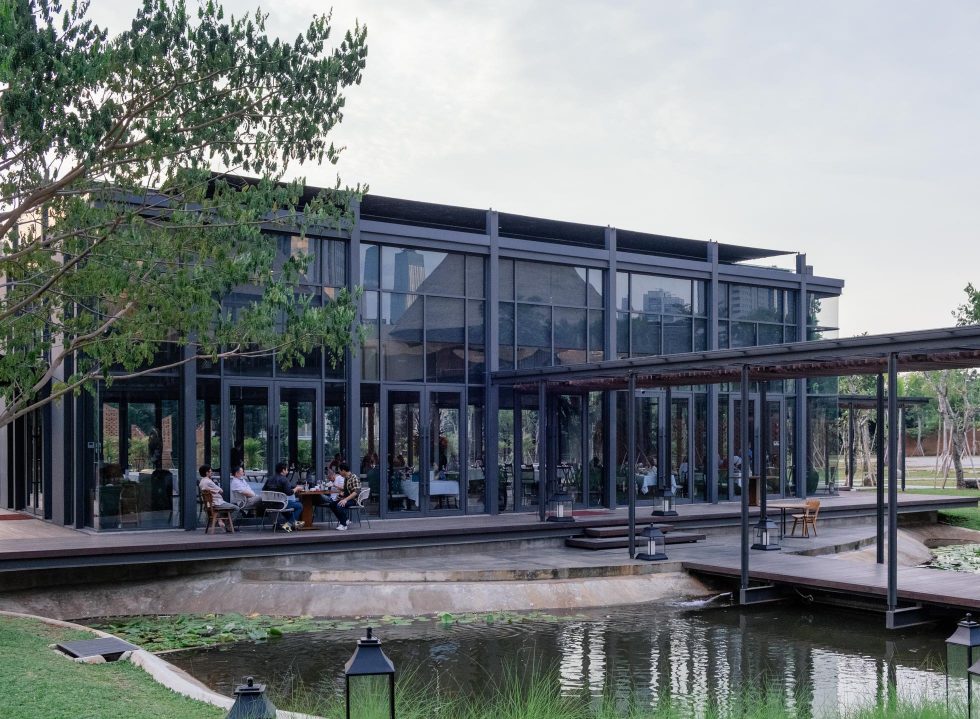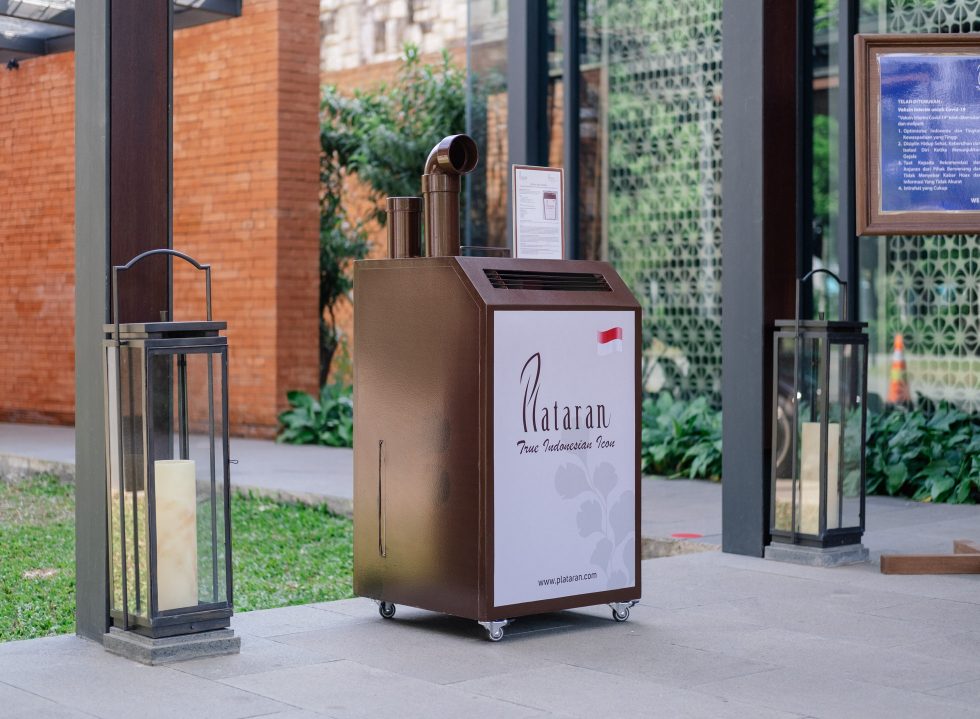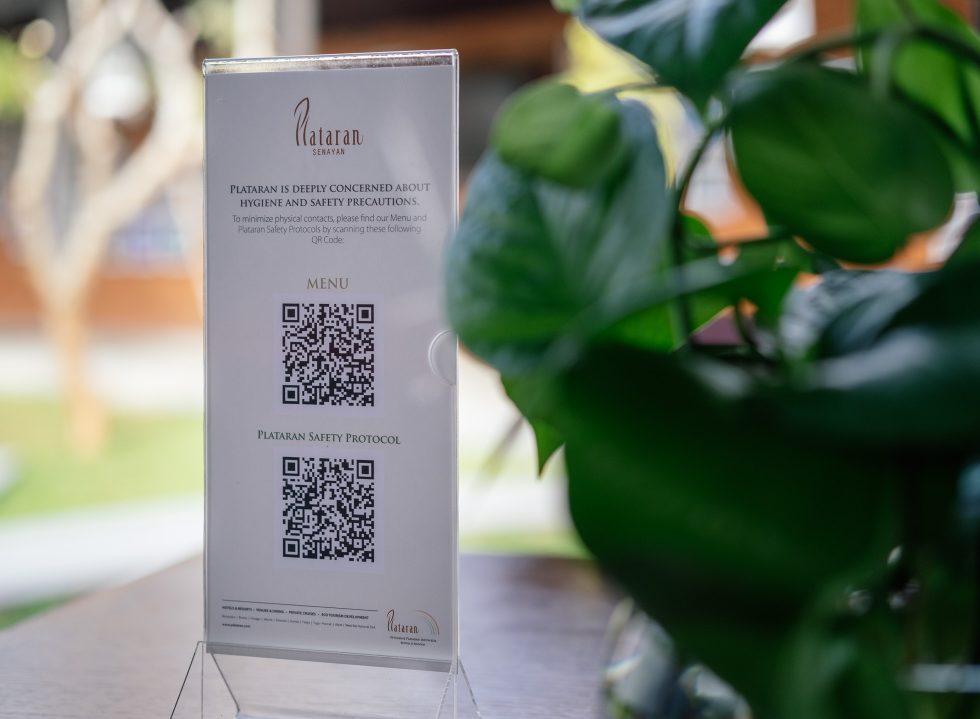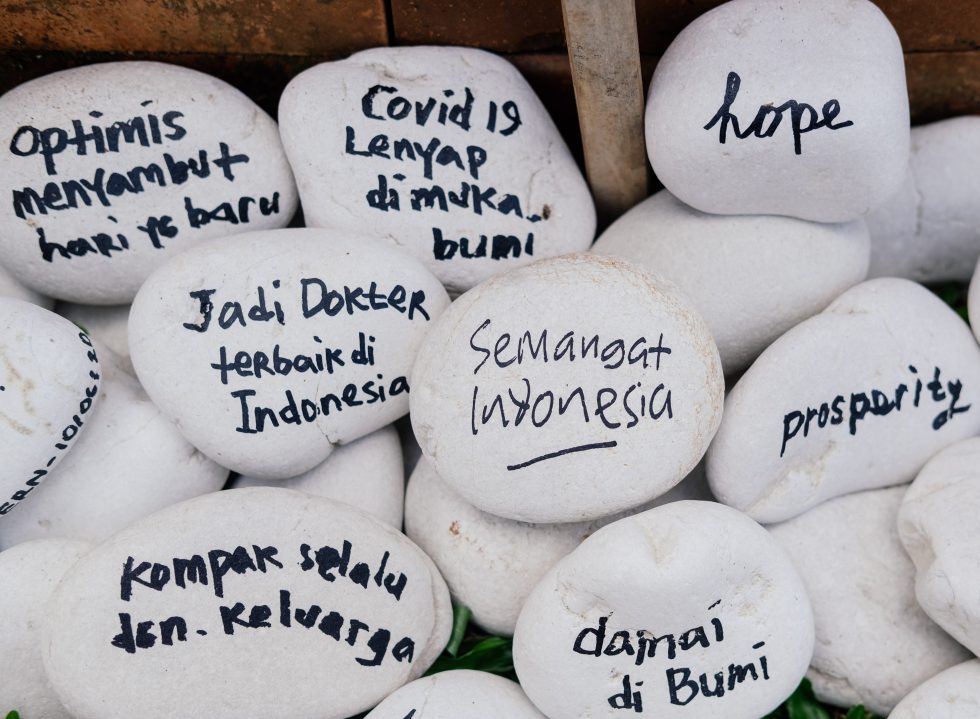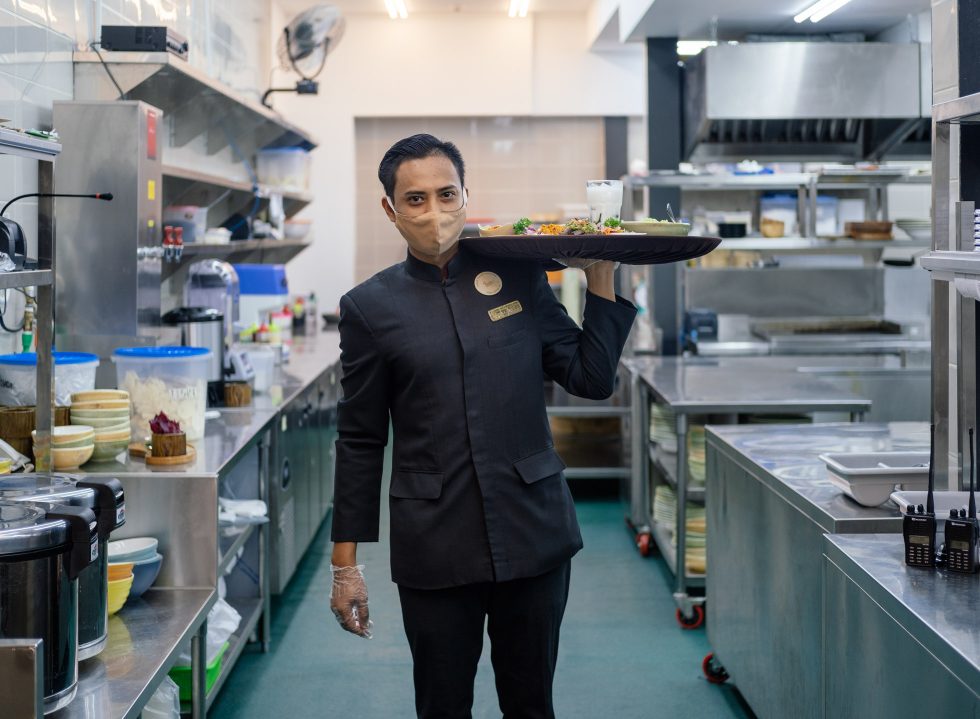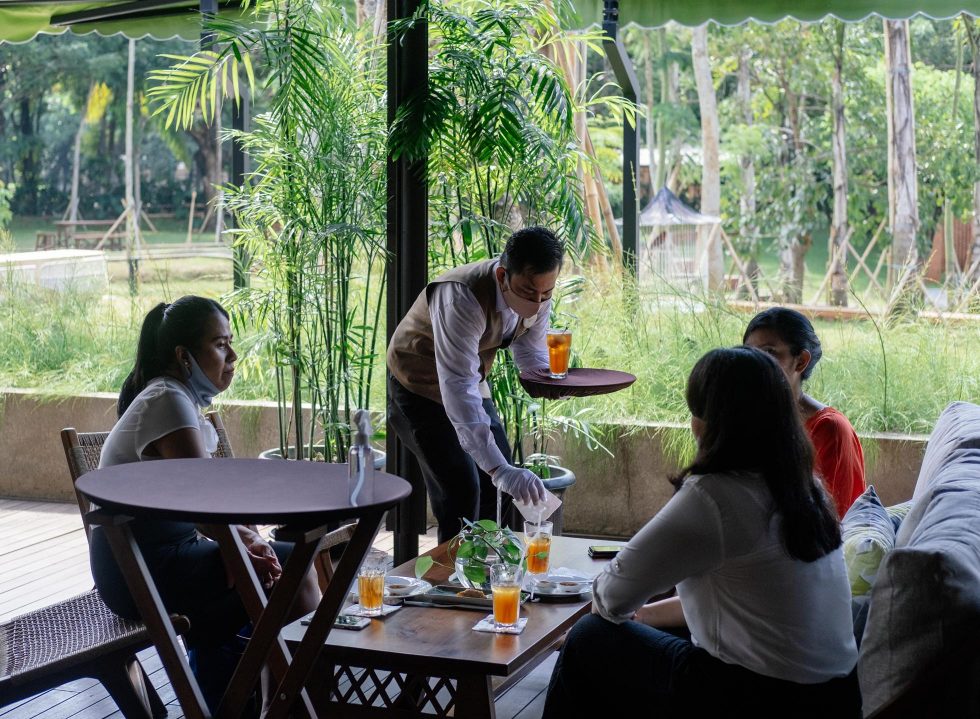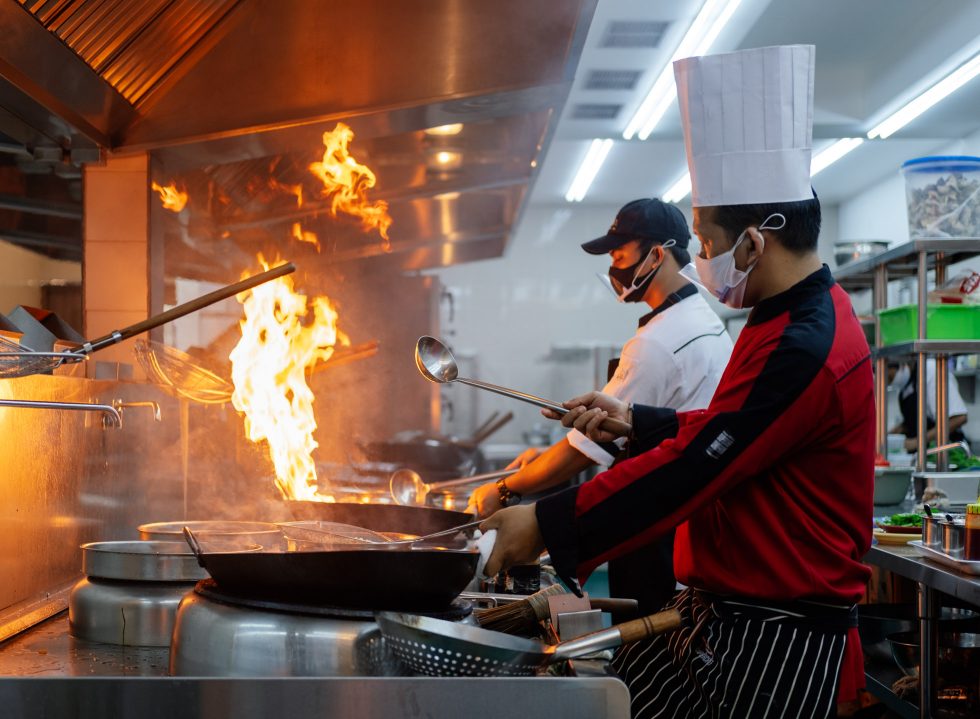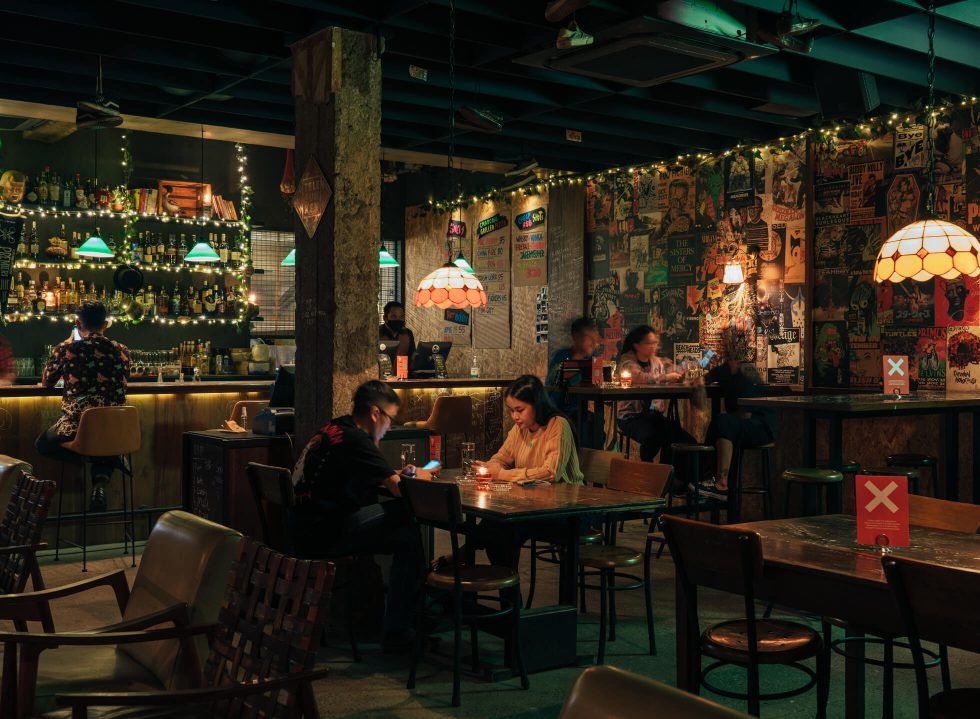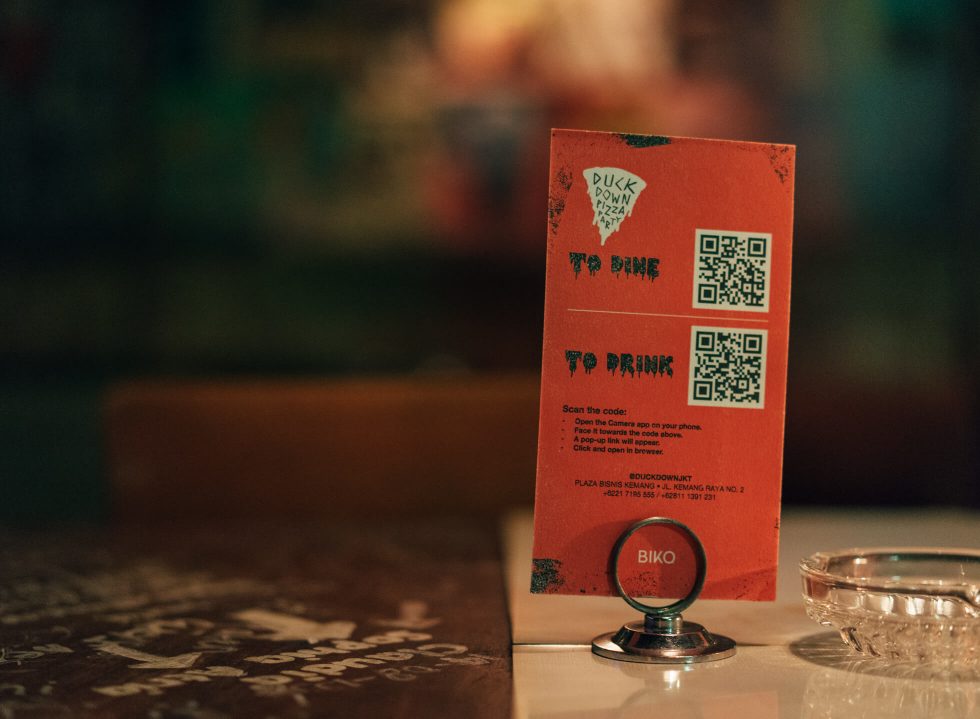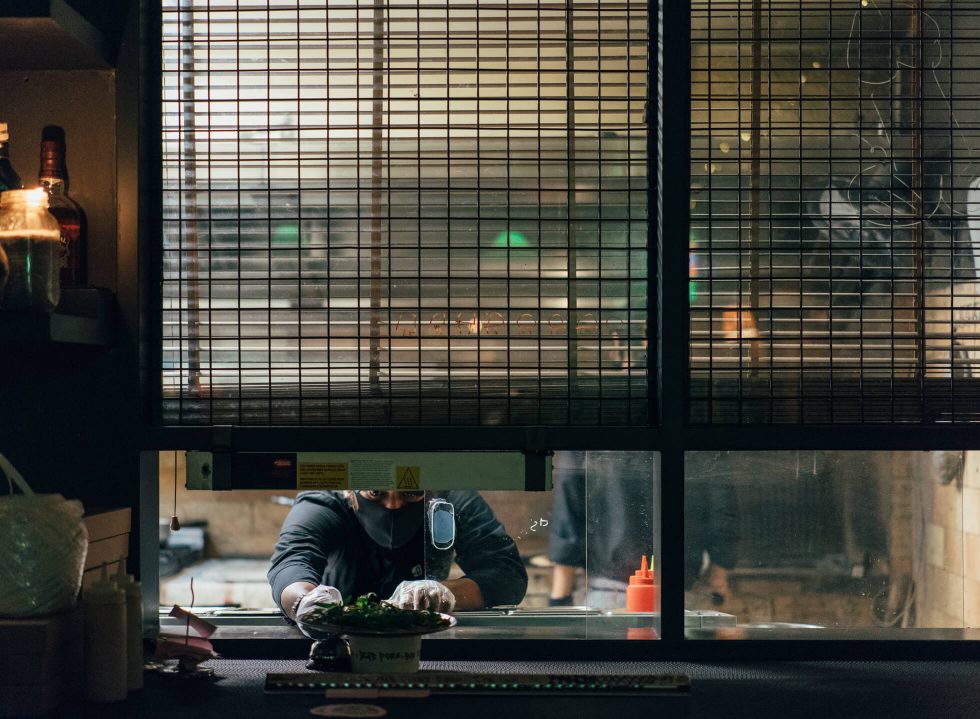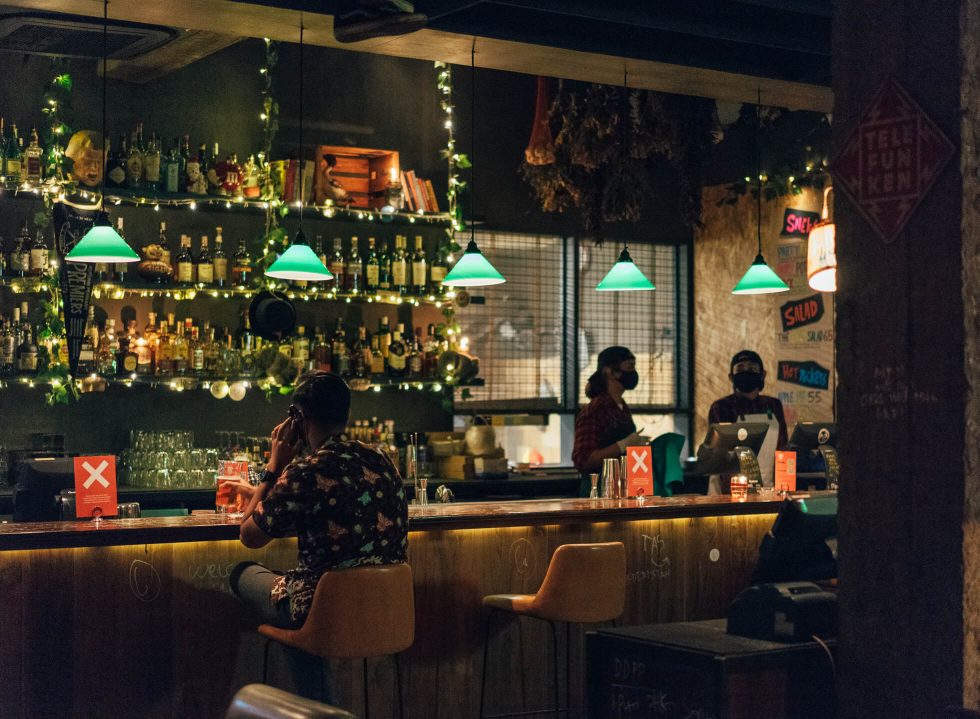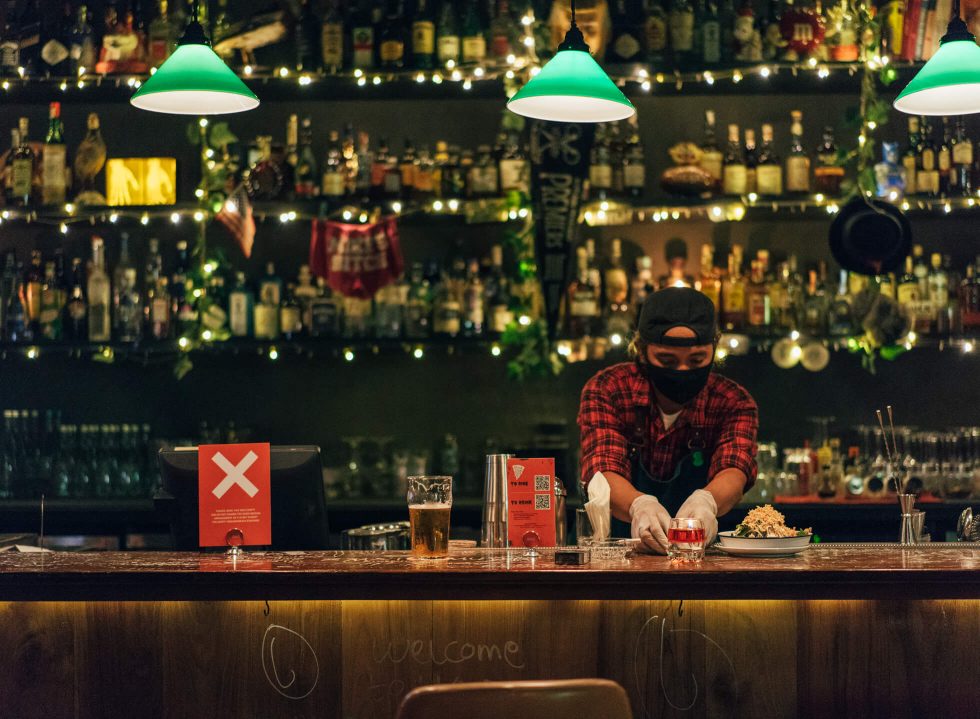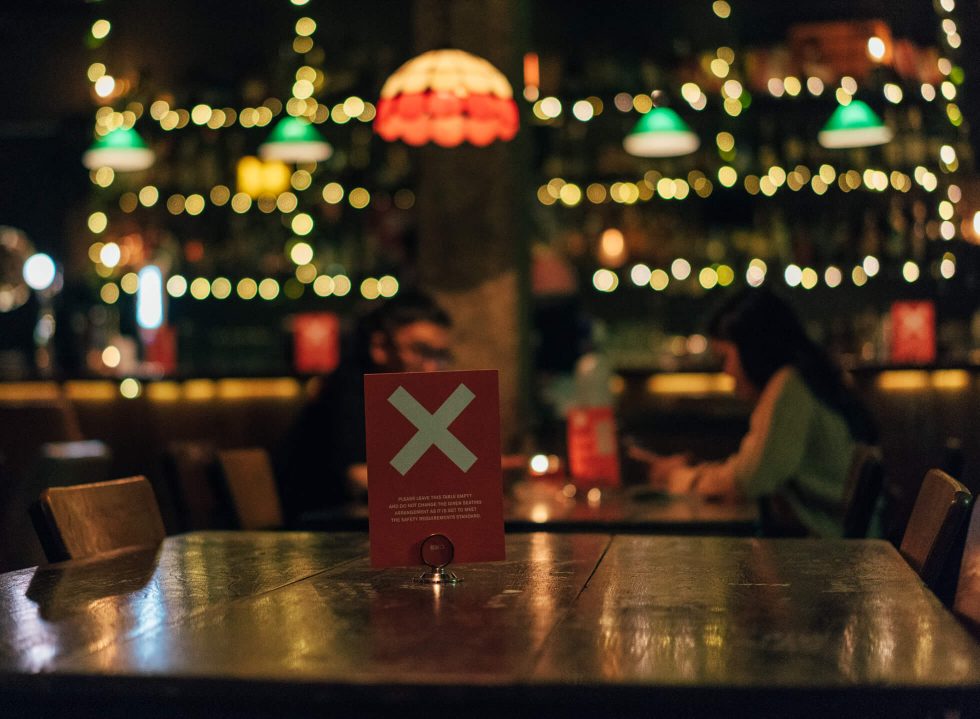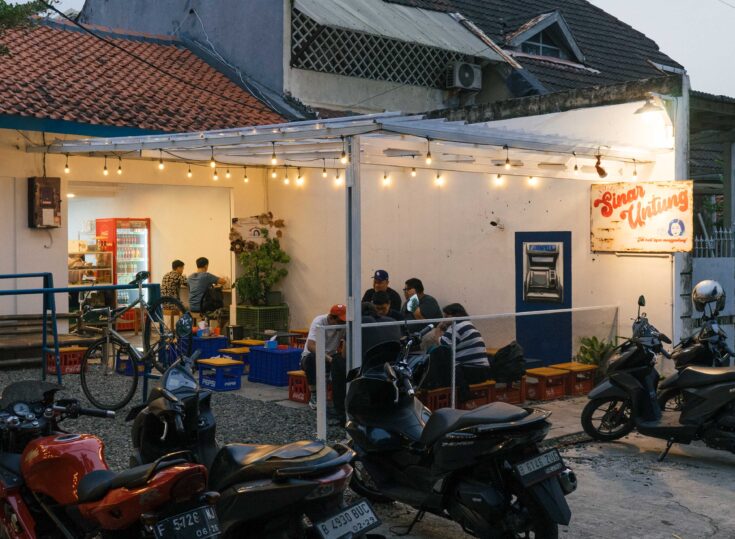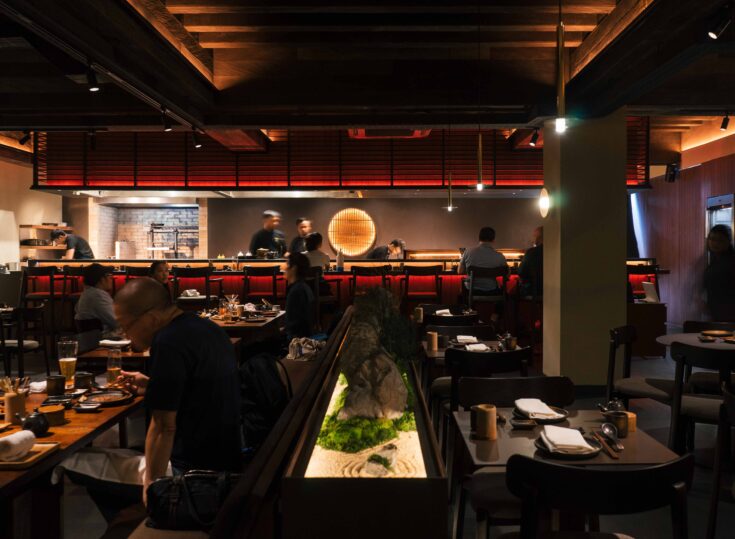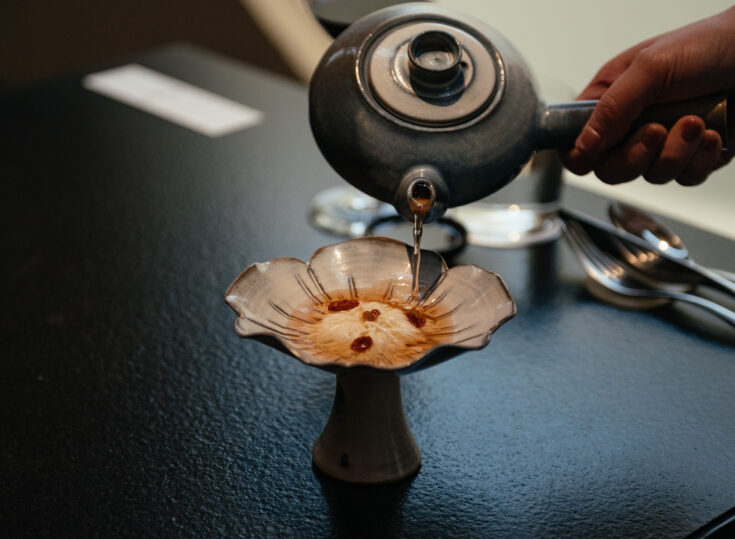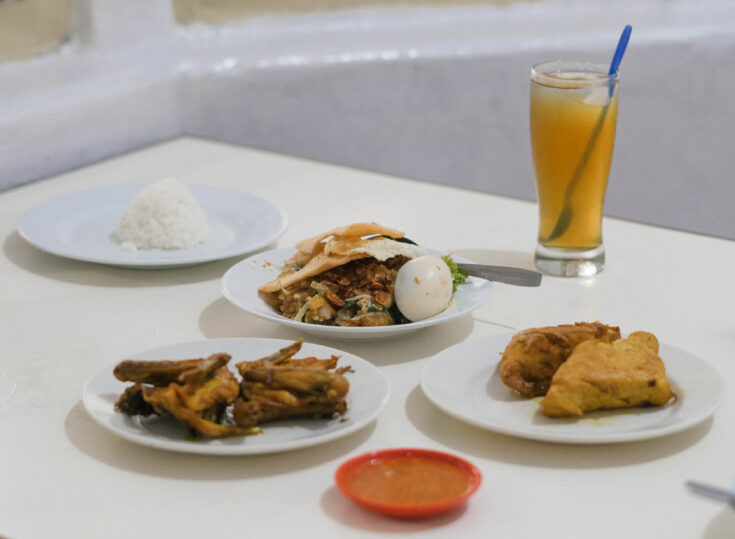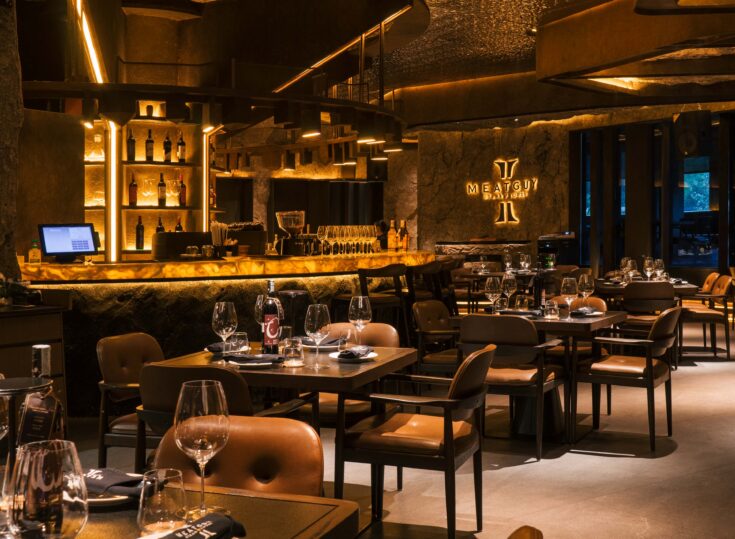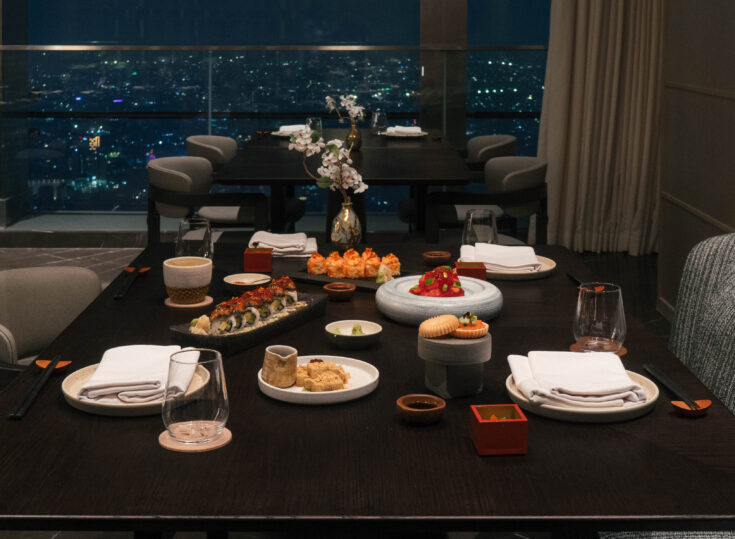Dining out is possible again, with caveats.
At Haka, a dim sum shop in Kemang, tables become significantly scant, with some marked off-limits. The second-floor dining area is also cordoned off, and even with diners present, the usually packed premise looks rather spacious with everything distanced accordingly.
These are just some of the measures the eatery has prepared for the ‘new normal’, or what Jakarta Governor Anies Baswedan described as “transition period”, as the country bounds for COVID-19’s recovery.
As of 8 June, standalone restaurants, like Haka, have been allowed to reopen for dine-in, with other recreational businesses following on separate dates. Issued by the Ministry of Tourism and Creative Economy, each business unit must implement the updated standard operating procedures (SOP), which include stricter hygiene and safety protocols.
The catch? Positive cases in Indonesia continued to soar (the highest in Southeast Asia) and many must wrestle this into perspective as establishments gradually reopen. We look into what the F&B industry has been preparing as they resume operations, as well as considerations that business owners and a cautious public bear in mind with this new reality.
Nothing is too safe
For the time being, every restaurant has to operate at a 50 per cent capacity, while rules and regulations weigh heavily on physical distancing and strict hygiene measures. These vary from asking customers to wash their hands periodically and distancing them one metre apart from each other to utilising single-use dinnerware for each.
Restaurants are also encouraged to integrate contactless means by offering email receipts and substituting physical menus to QR-codes. The latter is something that BIKO Group has inducted into their daily operations, along with other due diligence measures, such as decreasing operation hours, limiting tables to ensure distancing and wearing masks and gloves (for staff only) at most times.
Famed for establishments like Pao Pao, Lola, Duck Down Bar and Beer Hall, the lifestyle group has reopened some of their establishments on 8 June, with the rest (Pippo and Blackpond Tavern) on 15 June. “We apply the same rules and regulations across our bars and restaurants and both holds the same amount of challenges,” said Aninda Pardede, marketing director of BIKO. “We’ve been using this idle period to improve our establishments with better services, especially in this transition period where everyone wants assured safety.”
Still, the vagueness of the situation remains a coin toss for the BIKO team. “We do have mixed feelings about this. It’s as if we had to start all over again from scratch, from analysing and assessing to continuously adjusting.”
For Plataran Indonesia, who reopened their signature restaurants, Plataran (Menteng and Dharmawangsa) and Hutan Kota on 10 June, one of the difficulties was “making sure that every outlet has the same standards,” said Kay Tadjoedin, senior manager marketing of the hospitality group. “In our opinion, this is the most appropriate time to reflect and rejuvenate.”
In addition to the official safety protocols, Plataran offers personal services where food and drinks are brought by a dedicated waiter or through self-service from the provided counter. “We also encourage cashless payments and an updated valet service where we ask customers to wait at their tables to avoid crowding at the lobby.”
Going beyond, the group also partnered up with the Indonesian Medical Tourism Board to provide a rapid test/PCR booths, set to be stationed at Hutan Kota.
“Things are slowly turning out day by day. We never set high expectations because who knows in this situation?” said Kay. “[Due to the pandemic] we have to start from scratch again. But luckily, we have many loyal customers whom we are grateful for and this experience has truly humbled us.”
Over at Animale, many had pointed out the American-Mediterranean restaurant in Setiabudi, for being “extra” with their safety measures.
Considerably a new player in the F&B industry, the restaurant made sure that further research was done to create more innovative solutions, in addition to the official health protocols already set in place.
Some measures taken went to the extent of purchasing a UV light wand (which claims to kill bacteria within 15 seconds) to be used on sofas and seatings. To avoid contamination, each customer is provided with individual utensils and a disposable menu in sealed plastic. Eighteen sanitation points have also been set around the premise, while quat sanitisers for use on food-contact surfaces are provided on every table.
“Honestly, this transition period is exciting for us,” said Astrid Suryatenggara, chief marketing officer. “We just want to take it step by step. We also don’t set specific strategies to gather a crowd. We just want to flow with it and hopefully, get the hang of it [the protocols] soon enough so we can protect everyone here.”
Expectations vs reality
There’s a certain urgency with many F&B establishments reopening as soon as it was allowed. Much like BIKO group, plant-based eatery Burgreens, along with Haka and Animale, also decided to reopen on 8 June.
The first week was as expected. At Haka, the scene “feels less crowded for sure,” said Adelwine René, operations manager. Over at Burgreens, while expectations for walk-ins were low, there was still a surge in takeaway and online orders with offices reopening. At Animale, the scene was “chill, not too busy and met our expectations.” said Astrid. “We’ve been serving just enough tables for our servers and kitchen staff to transition well.”
The decision to reopen right away was an easy one for Animale. The same for Haka, who was confident to reopen knowing extensive research was done. “We’ve prepared with considerations, along with helpful references of other countries who are doing a good job in fighting the pandemic,” said Adelwine. “With updated safety protocols and the government’s permission, we were very confident to open back our doors.”
For Burgreens, the decision weighs differently for it involved the livelihood of their employees. “The past three months were tough for everybody – if not devastating,” said Irene Tjai, marketing communications manager. “During PSBB, we tried our best not to lay off any team members in both our outlets and office, so we are definitely more than ready to get everyone to work full time again.”
As a way to bounce back, many adjustments were made to boost operations as well as consumers’ interest with safety in mind. One of them is maximising contactless services through the soon-to-be-launched Burgreens Wellness App, a mobile app catering to customised meals based on one’s dietary preferences. In addition, customers can now pre-order their meals and have them picked up at respective outlets.
“We have seen first-hand how the environment has improved in these past few months. The interest in general health and nutrition is also unprecedented. So at Burgreens, we choose to see this transition as an exciting time to get better as a business and be better human beings.”
Under one roof
A complicated dilemma ensues lifestyle establishments like M Bloc Space and Eat & Eat, who manage several tenants under one space. As both are hubs of high traffic nature, the two posed a concern as potential clusters for virus transmission – a nightmare for any business.
To avoid this, M Bloc Space, who reopened on 15 June under the campaign #ResponsibleReopening, geared for ways to implement crowd control, even if it means potentially losing people’s interest.
“Limiting the number of visitors is done by a quota system per day. To enter the premises, visitors must register through Loket.com ticketing website,” said Jacob Gatot Sutra, building & tenant director of M Bloc Space. Would customers be less enthused to visit? Maybe. “But for the better good, we’re sure that the public will slowly understand as to why this should be done.”
Managing 17 tenants under one hub is no easy feat. Due to the diverse nature of each (think the likes of _Oeang, Kebun Ide and Titik Temu), finding a common ground on the new arrangement becomes a going-back-and-forth routine for the management.
“M Bloc Space is a community and we deem each tenant’s voice important. We would discuss everything before making a unified decision,” said Jacob.
Known for its unique food market concept, the long-established Eat & Eat also faced the same challenges. The establishment, which first opened in 2008, toughened up on necessary measures as they gradually reopened some of their outlets on 15 June.
In addition to the official safety protocols, other steps include a contactless payment and order system through a mobile application. Several food reheating stations are also set up at each outlet should customers wish to better prep their meals.
Like M Bloc Space, the toughest challenge for Eat & Eat is ensuring all health protocols and system changes are fully understood and implemented across staff, tenants and customers. “All these concerns are reasonable,” said Grace Yohani, marketing manager of the establishment. “But this is also a task for all parties to revive consumers’ longing for food again, so traffic can recover and hopefully, revive the world of culinary in due time.”
Brewing contemplations
Naturally, this transition period is met with a spectrum of reactions. Some are excited and hopeful, like Alisha Kusuma Oceani, a digital content consultant, who’s always liked going out to places where drinks and ambience mix well, especially around South Jakarta.
“I don’t mind meeting people outside, to be honest,” said Alisha. “I am well prepared with the protections I need when going out. So, I am happy that places are starting to reopen.”
Other people, however, require more time to better gauge the situation. For Barri Baskoro, who also likes weekend nights around the SCBD area, the insight to draw is that many Jakartans are simply not ready.
“While I believe restaurants and businesses will do their absolute best to adhere to the safety measures, I have less trust for people in our surroundings to exhibit enough caution to make others feel safe in public spaces.”
The sentiment echoes with Kevindra Soemantri, food writer and co-founder of food media brand, Feastin’, who argues that “we as consumers should never come with the attitude that everything is okay now. It is not,” pointing to the second wave infections in other countries where people were reported to frequent public places without caution as soon as restrictions were eased.
For Kevindra, who assisted in the making of the government’s safety and hygiene protocols, this transition period is for people who will either break it or make it. With changes seen in people’s behaviours for the past few months, F&B establishments must work to find out what the public is most concerned with right now.
“This period is key as to whether we should continue to operate or close our doors again,” said Kevindra. “This is the time for us to learn about the new behaviour of consumers and to operate a business under a new condition.”
Reopening the economy while keeping people safe and healthy are expected to happen when the public collectively plays their part in being responsible. For at the heart of this change, there’s COVID-19 who is still ever-present – a case too true for Indonesia where infections continued to rise.
“I expect people to understand that the reason we’re allowed to visit restaurants is so that we can restore the economy, not because the virus is completely gone,” closed Kevindra. “Be cautious. Do not take anything for granted. We are always connected with one another and every single thing that we do will have an impact on the other side.”
